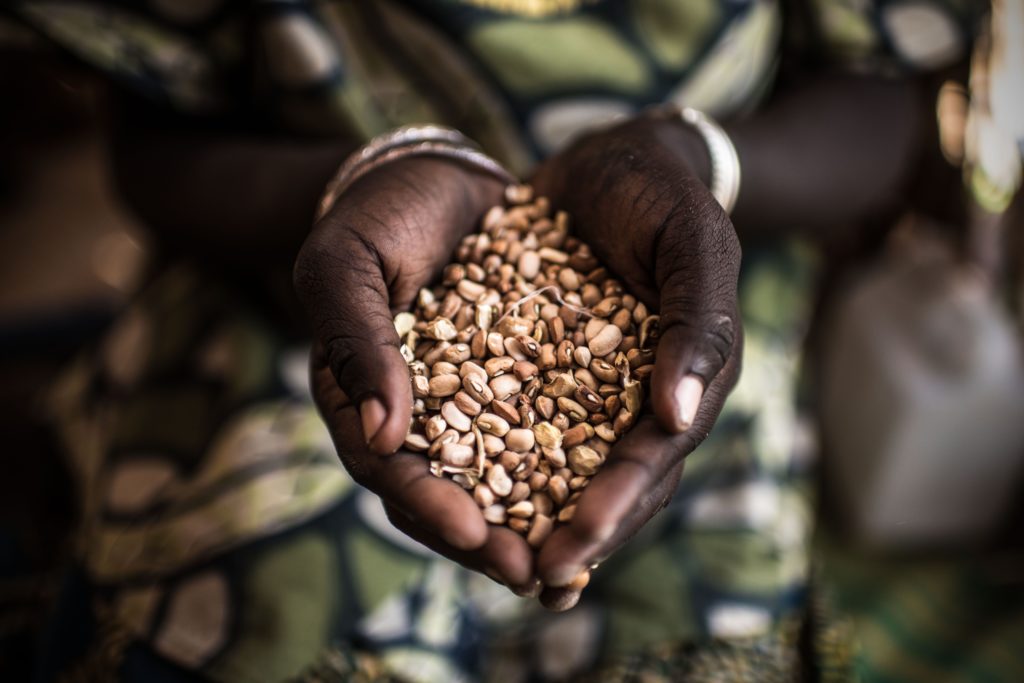Daniel Ishaku’s COVID-19 story
Daniel Ishaku is 16 years old and lives with six of his siblings in a one-bedroom house in an urban slum called Kapwa in Nigeria. Daniel lost his father when he was 4 years old, and his unschooled mother became the primary caregiver.
In order to sustain and provide for her large family of six, Mama Daniel resorted to making and selling the local beer known as Burkutu – which the community have come to enjoy, and a good number of customers visited her business daily. This is, and now was, what provided the decent daily income which she utilized to care for and support her children’s schooling and welfare.
Now food is scarce for lack of patronage
With the advent of the Coronavirus (COVID-19) pandemic and the enforcement of the government lock-down policy, Mama Daniel is unable to sell her product because no one will come out as they are terrified of contracting the virus – so she is forced to close the business for now until this problem is over.
Daniel laments that hunger has increased due to Mama’s inability to provide as much food as she was used to. With no income, or support from friends, family, and the government, it is nearly impossible for her to continue with obeying the government’s instructions of remaining at home; she’s afraid that if government does not lift or reduce the timing for the lock-down policy, her desperation to keep her family alive will become her number one priority.
The government responds
The government of Nigeria has continued to adopt and adapt to new global strategies daily as a result of the COVID-19 pandemic by putting many measures in place, including, contact tracing, testing, treatment of positives, school closure, and the stay home policy, with further enlightenment for the adoption of social distancing, constant washing of hands, ban on inter-state travels & mass gatherings, public wearing of mask – all these to help inhibit the spread and prevent the worse outcomes of the virus.
While we commend and agree that these measures are the best for the situation at hand – one that will curb the infection trend, we have come to note its downsides as the outcome of these drastic measures is presenting a whole new challenge for families and caregivers especially in vulnerable homes. Many Nigerians live everyday with the inability to further meet their basic needs like food, clean water and daily income.
In response to the plight of the vulnerable households in the Federal Capital Territory (FCT), the HIV/AIDS unit of the Social Development Secretariat (SDS) of the Federal Ministry of Women Affairs and Social Development (FMWSD) through the Association for Orphan and Vulnerable Children in Nigeria Network (AONN), FCT Chapter, distributed palliatives to some of the vulnerable households. As a member of AONN and a member of CS-SUNN’s steering committee, Heal The Youth Foundation (HTYF), was called upon along with five other organizations to distribute the items listed below to the community.
| Item | Unit |
| Hand Sanitizers | 300ml; 2 bottles |
| Bread | 4 loaf |
| Gala snacks | 8 cartons; 26 pcs/carton |
| Groundnut cookies | 4 cartons; 18 pcs/carton |
| Coconut Cookies | 4 cartons; 18 pcs/carton |
These items were shared among 26 children including Daniel who came along with his siblings to collect their share. Each child received eight pieces of Gala (a type of sausage snack), four pieces each of groundnut and coconut cookies, other items like bread and sanitizers where given to the gate keepers.
He was happy to receive the palliatives brought by the government through HTYF because it brought instant relief of the hunger pangs, however, he mourned that these will not be enough in the long run. He would urge the government to do more by providing real food items like rice, beans, corn flour, palm oil and other grocery provisions to help reduce the hunger being inflicted by the lockdown.
Caring for every Nigerian is not a one-off job
Note that this was just a one-off event and no food item was delivered again to these households.
Daniel’s story is a representation of about 2 million orphans and vulnerable children living in Nigeria. According to UNICEF about 2 million children in Nigeria suffer from severe acute malnutrition and only two out of every 10 children affected is currently reached with treatment. Nigeria has the highest number of people living in extreme poverty in the world. Civil conflict continues to spread in several parts of the country.
Written by:
Aji R. Robinson
Founder & Executive Director
Heal The Youth Foundation
Email: [email protected]
Twitter: @htyf_worldwide
IG: @htyf_worldwide
Facebook: Heal the Youth Foundation
www.htyfworldwide.org (WIP)
The story is a true recorded account narrated by Daniel Ishaku himself (Voice Note recording) on 26th April 2020, during an encounter that took place at the distribution of the palliative by HTYF. Heal the Youth Foundation sit on the steering committee of CS-SUNN in Nigeria.
Story is Transcribed and reported with consent.
| Photo credit: Tommy Trenchard / Save the Children |


